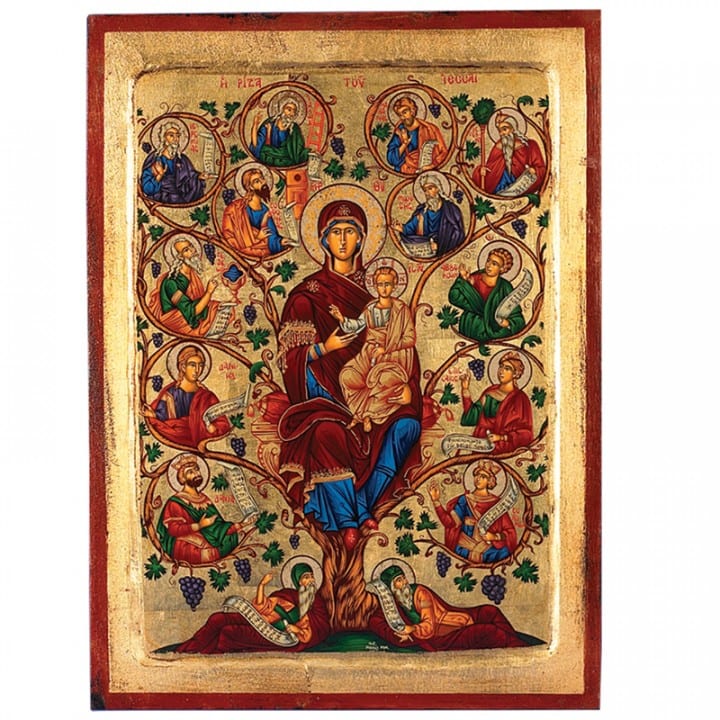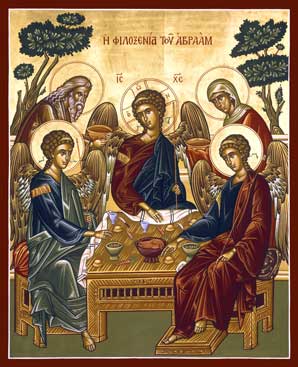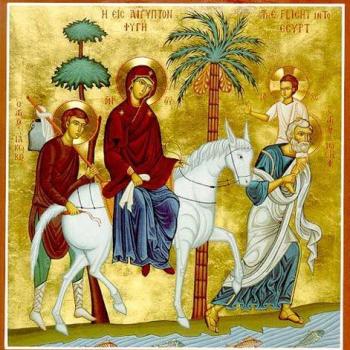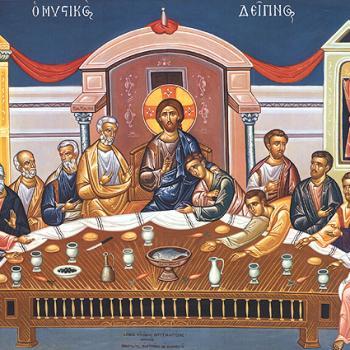In his classic bestseller The Orthodox Church, noted Metropolitan Kallistos Ware shares the following insight into the close connection between Eucharist and ecclesiology:
[A]t the Eucharist the members of Christ’s Body the Church receive His Body in the sacrament. The Eucharist, by uniting the members of the Church to Christ, at the same time unites them to one another.
Essentially, Ware is stating from an Eastern Orthodox perspective what then-Cardinal Joseph Ratzinger and Cardinal Avery Dulles have often stated from the Catholic perspective.  First, within the Eucharist, sacrament and ecclesiology are closely connected. Second, there is a vertical dimension to eucharistic communion through which the Christian believer unites oneself to Christ, and through Christ, a horizontal dimension through which Christian believers unite themselves to each other.
First, within the Eucharist, sacrament and ecclesiology are closely connected. Second, there is a vertical dimension to eucharistic communion through which the Christian believer unites oneself to Christ, and through Christ, a horizontal dimension through which Christian believers unite themselves to each other.
This should hardly be surprising to sincere Christians. Both vertical and horizontal are required to make the sign of the cross.
Yet Ware goes even further in his explanation of Eucharistic ecclesiology. As one reads in the following passage, Ware states that the Eucharist creates unity among Christians within the Church:
The Eucharist creates the unity of the Church. The Church (as Ignatius saw) is a Eucharistic society, a sacramental organism which exists – and exists in its fullness – wherever the Eucharist is celebrated. It is no coincidence that the term ‘Body of Christ’ should mean both the Church and the sacrament; and that the phrase communion sanctorum in the Apostles’ Creed should mean both ‘the communion of the holy people’ (communion of the saints) and ‘the communion of the holy things’ (communion in the sacraments).
Space does not permit me to analyze Ware’s quotation in great depth. Yet some additional key insights shared by Ware, from the perspective of Eastern Orthodoxy, yet at the same time consistent with the Western Catholic perspective presented by Ratzinger and Dulles, are the following: First, the Eucharist creates the unity that it – more accurately, He – signifies.
Second, this unity, which shares a common terminology, is both sacramental and ecclesiological. That is, the communion found in Christ through the Eucharist also brings about and deepens communion between believers as a Church. Likewise, we as Christ’s body the Church consume Christ’s body and blood in the Sacred Mysteries.
















